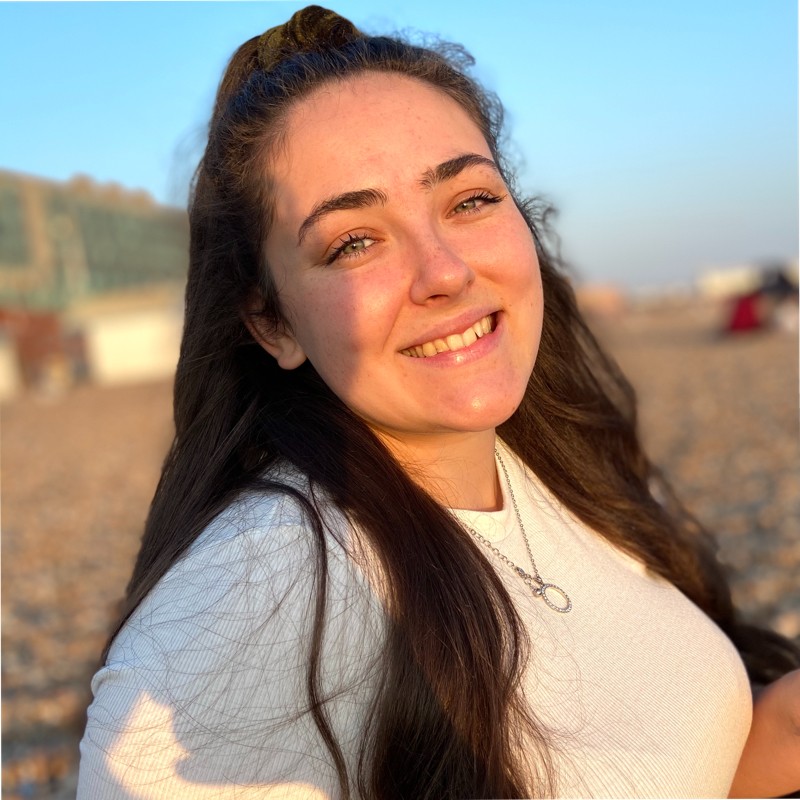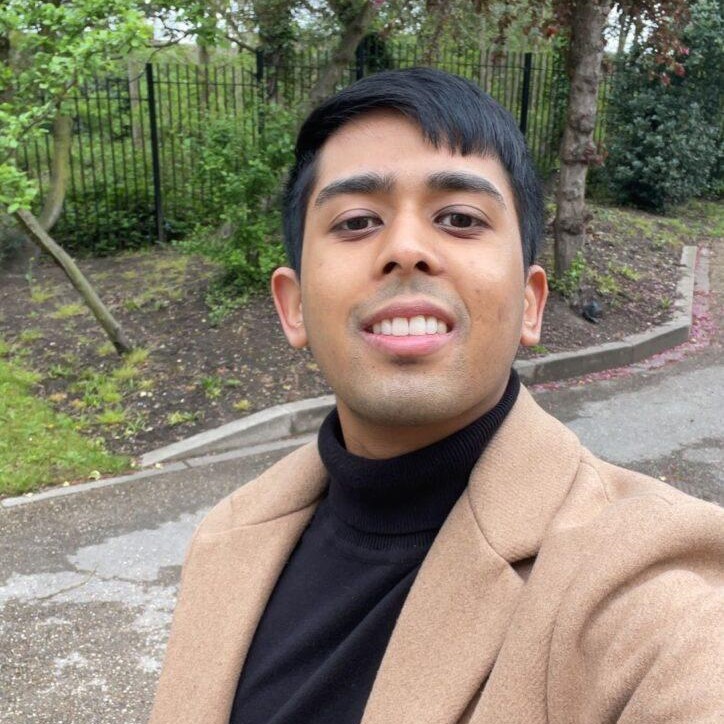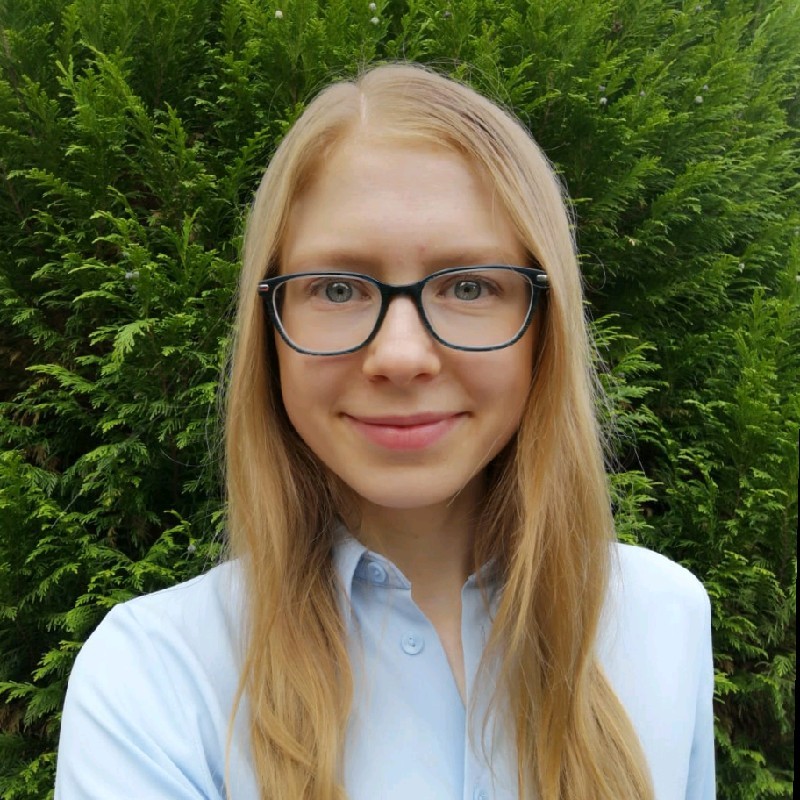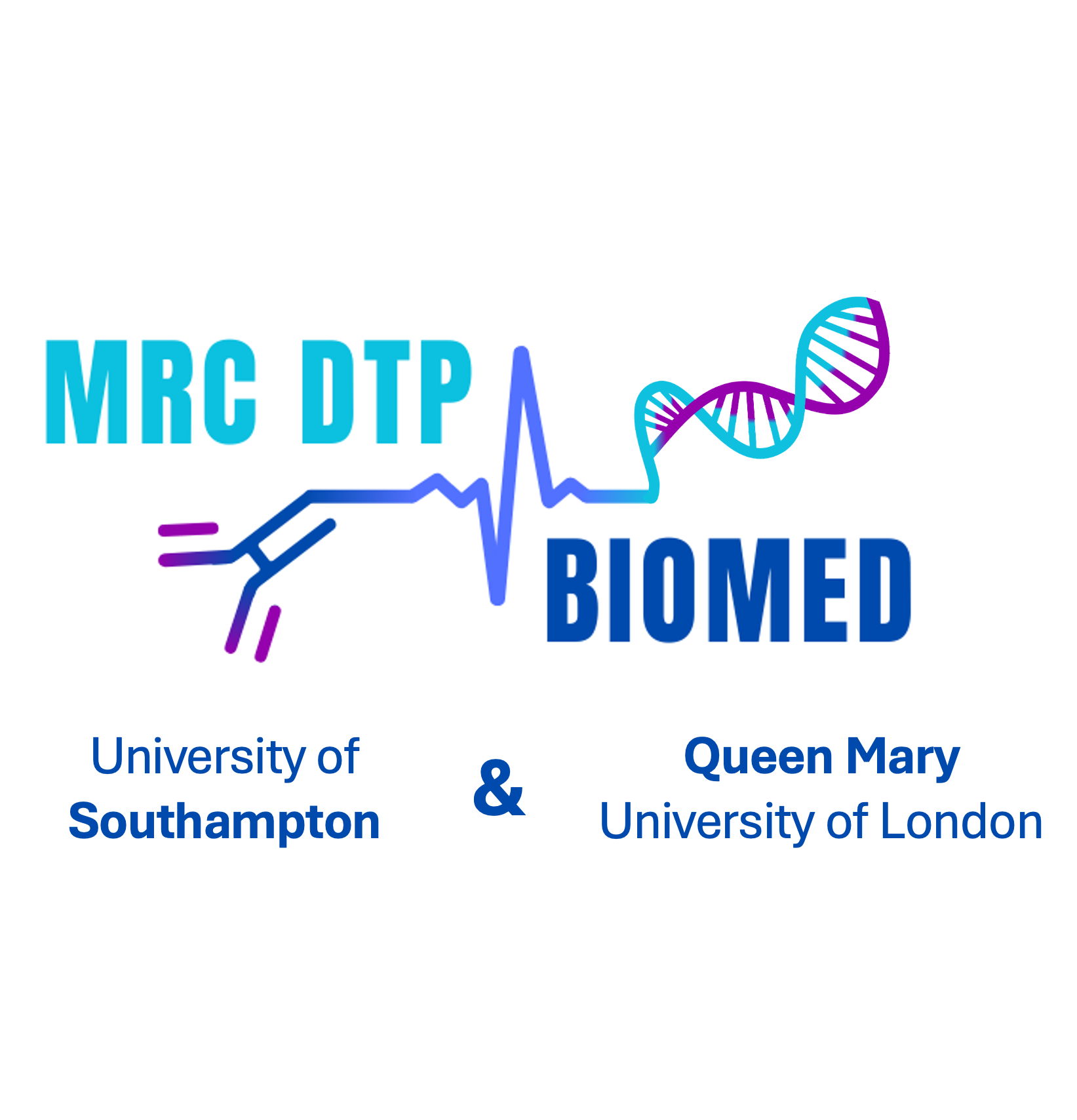
Cancer, Inflammation and Immunology
What is your current rotation? I am currently undertaking my first rotation with Dr Mirjana Efremova. This project focuses on the analysis of single cell RNA-sequencing (scRNA-Seq) data from patients with triple negative breast cancer, aiming to characterise the heterogenic cancer cell states and the interactions with the tumour microenvironment. This data is from treatment-naïve patients and can later be compared to mid- and post-treatment samples.
What skills have you developed so far? So far, I have been focusing on learning how to use R to analyse the scRNA-Seq data. I have no previous experience using R or analysing large data sets. Therefore, it has been interesting to learn how to use R and how it can be used to analyse patient data.
How have you found the mathematic/computational component of the DTP? The bioinformatics sessions in Southampton have been useful as learning R in these sessions has helped me with my current rotation. The sessions themselves can be difficult, especially when learning something new. However, the session leads are helpful and explain the concepts well.
What have you enjoyed most about your experience so far? What have you found challenging? The best part of this scheme is being able to join multiple labs during the MRes year, as it allows me to work with multiple supervisors but also to try things which I wouldn’t have the opportunity to do if I went straight into a PhD. I have least enjoyed balancing travelling weekly to Southampton, the research methods module and my first rotation all at once. The prep work and coursework for research methods is quite time-consuming when balancing it with everything else.

Immunity and Infection
What rotation did you decide to pursue for your PhD project and why? For my PhD project, I combined my last two rotations together, meaning I am part of a collaboration between laboratories run by Professor Tilman Sanchez-Elsner and Professor Salim Khakoo. My project focuses on the interaction between natural killer cells and macrophages in the tumour microenvironment and I ultimately aim to manipulate the relationship to boost anti-tumour responses. I ended up combining the rotations because I thoroughly enjoyed both and couldn’t decide on just one of them!
What skills have you developed so far, and what skills do you hope to develop? I have developed useful laboratory skills in immunological research, such as immunohistochemistry techniques, ELISAs, qPCR, flow cytometry and tissue culture. I am now focusing on developing my time management skills and working independently in the laboratory, as well as improving my presentation skills.
How have you found the mathematic/computational component of the DTP? The bioinformatics module has been incredibly helpful as I have no previous experience in this area. It’s interesting to not only learn the techniques but to be given examples of how they are used in modern medical research. We have practical workshops to try out the coding and analysis and the demonstrators in these are very friendly and good at explaining everything.
What have you enjoyed most about your experience so far? What have you found challenging? Working between two research groups has been exciting and I have loved learning different techniques from each group. I have particularly enjoyed getting to grips with flow cytometry as it was quite daunting to begin with, but now I feel more confident and conquering a new technique is very satisfying. My main challenge has been coordinating space, resources and time between the two groups, for example it can be hard to manage your time during weeks when you are meeting both supervisors or attending two laboratory meetings.

Cancer, Inflammation and Immunology
What rotation did you choose for your PhD project and why? I decided to pursue my last rotation of the MRes year in Prof. Tyson Sharp’s lab. Here, my role is involved in characterising and targeting novel synthetically lethal vulnerabilities in LIMD1 deficient cancers.
I chose this project for several reasons, including the novelty of the work related to it since the main aim is to characterise exciting novel targets identified from two whole genome CRISPR functional screens performed in collaboration with the CRUK Functional Genomic Centre. As LIMD1 is a tumour suppressor gene frequently lost during the early stages of lung carcinogenesis, which results in a worse outcome in LIMD1 deficient patients, it is crucial to identify and target novel intrinsic vulnerabilities in these LIMD1 deficient lung cancers. Furthermore, this project also allows me to obtain my personal project licence to carry in vivo to validate the targets confirmed following the in vitro work.
Furthermore, a supplementary reason for me choosing this project was the lab group itself. In fact, being under the supervision of Prof. Sharp’s, as well learning from highly experienced postdoctoral researchers such as Dr. Kunal Shah and Dr. Paul Grevitt, were important aspects for me to consider for my optimal growth as a cancer researcher.
What skills have you developed so far? As I progressed through my MRes year and during my current initial period of my PhD, I have implemented my skills in key techniques such as routine cell culture, western blot, cell titer-glo and qPCR, to state a few. However, I am also fortunate to be learning and practising new fundamental methods in research like CRISPR technology. Increasing my knowledge in these essential research procedures and being able to master them is highly valuable for me to get the best quality of data during my PhD.
How have you found the mathematic/computational component of the DTP? The taught computational component of the DTP delivered at the University of Southampton represents a highly valuable opportunity for me to widen my skillset in terms of data analysis of large datasets. I am finding this module extremely interesting, and I believe it will be greatly useful for my academic career due to modern day cancer research requiring interdisciplinarity from different fields of study, especially bioinformatics and computational modelling.
What have you enjoyed most about your experience so far? What have you found challenging? So far, I am really enjoying my PhD as I am starting to organise, schedule and perform experiments after carefully planning for them. I highly enjoyed all three of my MRes rotations, as each of them provided me with a new skillset that I previously did not possess. As a full-time PhD student, carrying out experiments and maintaining an organised schedule is essential, but the laboratory environment can quickly evolve to a very fast-paced one with lots of challenges, for which I must be prepared to face.

Cancer, Inflammation and Immunology
What rotation did you decide to pursue for your PhD project and why? I am undertaking my PhD in Dr Mirjana Efremova’s group, investigating the effect of chemotherapy on the single-cell landscape of colorectal cancer liver metastases. I chose this project as I am very interested in understanding how different cancer cell and tumour microenvironment populations are altered by therapy through non-genetic mechanisms. The opportunity to work with data from patient samples, and the major computational aspect of this PhD, were also key motivations for me.
What skills have you developed so far? In my current project, I have learnt and applied different methods for analysing single-cell RNA-seq data, including integration of datasets, differential expression and abundance testing, and inference of cell-cell communication. I will also be learning new computational methods for analysis of ATAC-seq and spatial transcriptomics data. During my MRes rotations, I developed wet-lab skills, such as immunohistochemistry and RNA-seq library preparation.
How have you found the mathematic/computational component of the DTP? The Quantitative Cell Biology module in Southampton was very helpful for learning how to analyse biological data in R, which I have applied for analysis of my own RNA-seq data. It was very valuable to discuss new bioinformatics concepts with researchers in the field and other students. The Queen Mary statistics module was also useful for understanding how to apply different statistical methods.
What have you enjoyed most about your experience so far? What have you found challenging? I have really enjoyed applying a number of different computational methods to explore patient-derived single-cell data in my project. I have enjoyed working collaboratively with other researchers and learning about the diverse areas of cancer research at the Barts Cancer Institute. It has sometimes been challenging to determine the best approach for analysing my data, in cases where there is not a readily-available or accepted method.

Cancer, Inflammation and Immunology
What rotation did you choose to pursue as your PhD project and why? My current PhD project with Dr Oliver Pearce aims to investigate the involvement of a particular extracellular matrix (ECM) protein, deposited by fibroblasts in the tumour microenvironment, in mediating resistance to chemotherapy in triple negative breast cancer (TNBC) via interactions with macrophages. I am going to characterise its regulation upon chemotherapy and immune checkpoint inhibitor (ICB) therapy in order to understand how to revert the immunosuppressive phenotype and to improve therapy response by using both in vitro and in vivo approaches.
What skills have you developed so far? Thanks to the rotational year, I had the opportunity to widen and further develop several laboratory skills, such as western blotting, PCR, imaging techniques and analysis. Also, I have learnt cloning techniques and how to perform gene knockdown in vitro.
How have you found the mathematic/computational component of the DTP? It can be quite overwhelming at first, especially because this is something I have never been taught before. However, having an understanding of bioinformatics is becoming always more important within scientific research. Therefore, the quantitative biology module in Southampton is an important opportunity for learning basic R coding, which is an incredibly valuable skill to acquire for the future.
What have you enjoyed most about your experience so far? What have you found challenging? I have really enjoyed the rotational year I have just concluded. It was extremely useful to widen my research skills and to create a good network with other researchers in other departments working on different fields. I also really enjoy my current lab and department. It is an amazing environment to work in, I feel inspired everyday by the research of my colleagues and they are all really supportive and helpful. I have just started my PhD years, so I guess I still need to face the real challenges, even though the rotational year was also quite intense, with the exam workloads, lab experiments and research project write-up all at once!

